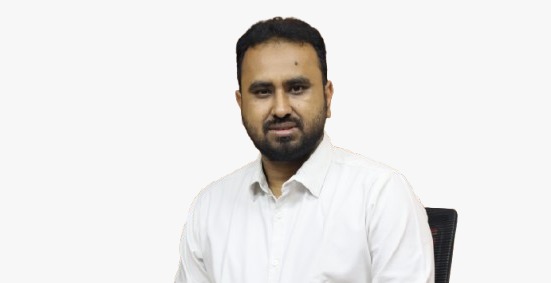
By Rakib Hossain, Researcher & Development Professional, PhD Fellow in Economics, Khulna University.
As the global economic landscape faces mounting uncertainties, Bangladesh finds itself at a critical juncture. Recent data trends indicate a worrying slowdown in economic momentum, with clear implications for poverty reduction, employment generation, and overall development aspirations. Without bold and effective interventions, the country risks deepening the poverty trap that threatens millions. According to the latest projections, Bangladesh’s economic growth is expected to decelerate sharply. Inflation remains persistently high, eroding purchasing power and pushing many lower-income families into extreme poverty. A projected rise in the ultra-poor population by 3 million this year highlights the urgent need for recalibrating development strategies to prioritize poverty alleviation and economic inclusion.
The link between inflation and poverty is straightforward but devastating. When the cost of essential goods rises faster than incomes, especially for wage-dependent and informal sector workers, households are forced to cut back on food, education, and healthcare perpetuating cycles of deprivation. In Bangladesh, where a significant share of employment occurs in the informal sector—without access to minimum wage guarantees or social protections the inflationary burden is even heavier.
Compounding these challenges is the sluggish pace of both domestic and foreign investment. Investor confidence remains fragile, partly due to political uncertainties and global financial volatility. Without new investments, job creation stalls, further constraining income opportunities for the poor. Alarmingly, while there has been some employment growth in sectors like ready-made garments, net job creation remains negative when accounting for layoffs and business closures. Another bottleneck lies in the underperformance of social protection programs. While Bangladesh has made commendable strides in expanding safety nets over the past decade, implementation gaps persist. Beneficiary targeting, program delivery, and monitoring systems are still plagued by inefficiencies, often leaving the most vulnerable communities underserved. Relying solely on bureaucratic administration without grassroots and community involvement exacerbates these challenges.
Moreover, Bangladesh’s national poverty line measurement continues to diverge from international standards. At the global level, extreme poverty is defined as living on less than USD 2.15 per day in purchasing power parity terms. National poverty lines, while context-specific, must be regularly adjusted to reflect real costs of living if they are to serve as meaningful benchmarks for social progress.
The path forward demands a more comprehensive and courageous approach. First, future budgets must place poverty reduction and employment creation at the heart of fiscal policy. Public investment should prioritize sectors with high labor absorption potential, such as agriculture, manufacturing, and green industries. Special incentives for micro, small, and medium enterprises (MSMEs), which are the backbone of the informal economy, can generate broad-based employment if coupled with skills development and financial inclusion programs.
Second, inflation management must become a central objective of macroeconomic policy. Stabilizing food and fuel prices through strategic reserves, market monitoring, and regulatory reforms can ease pressure on household budgets. Simultaneously, wage growth policies must be strengthened to ensure that real incomes do not lag behind cost-of-living increases.
Third, social protection programs require both expansion and modernization. Leveraging digital technologies for beneficiary registration, fund disbursement, and monitoring can significantly reduce leakages and ensure that support reaches those who need it most. A transparent, participatory approach involving local governments, NGOs, and community organizations can enhance program credibility and impact.
Finally, restoring business confidence through clear policy direction and political stability is paramount. A predictable investment climate will unlock much-needed private capital, driving productivity gains and employment growth. In turn, a more dynamic economy will generate the resources necessary to sustain long-term poverty eradication efforts.
Bangladesh’s development journey has shown remarkable resilience over the decades. However, complacency at this critical stage could reverse hard-won gains. The future demands not incremental adjustments but bold, well-coordinated action plans that place human development at the center of economic recovery. Only through strong, imaginative programs can Bangladesh hope to lift millions out of poverty and set a course for inclusive, sustainable growth.









